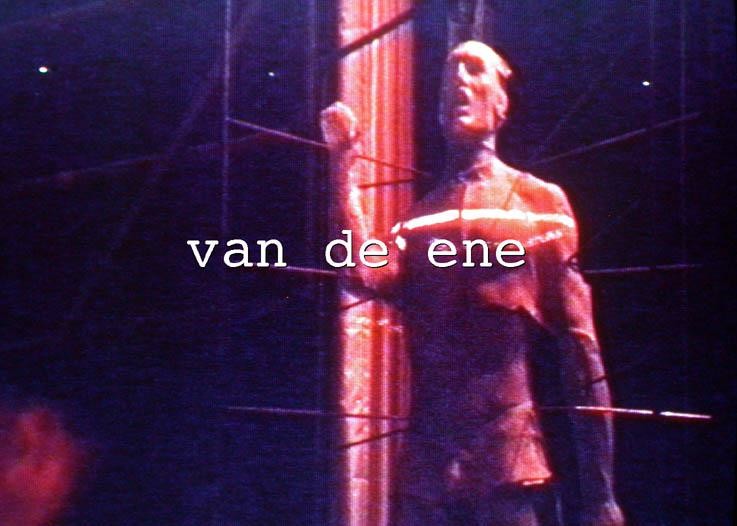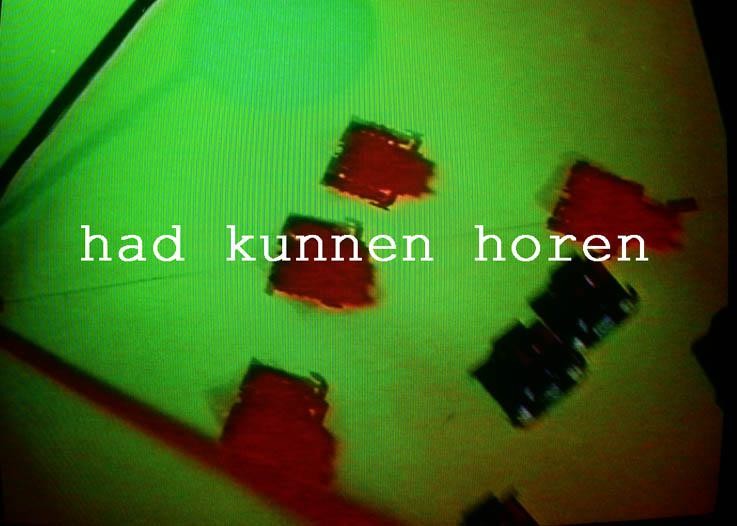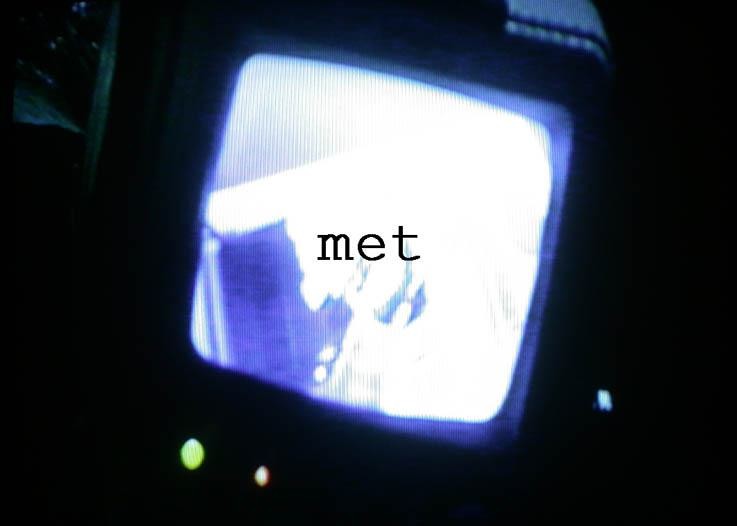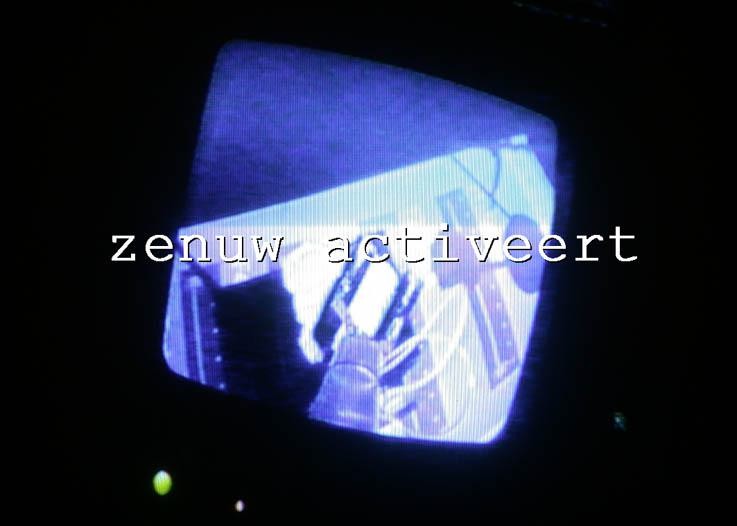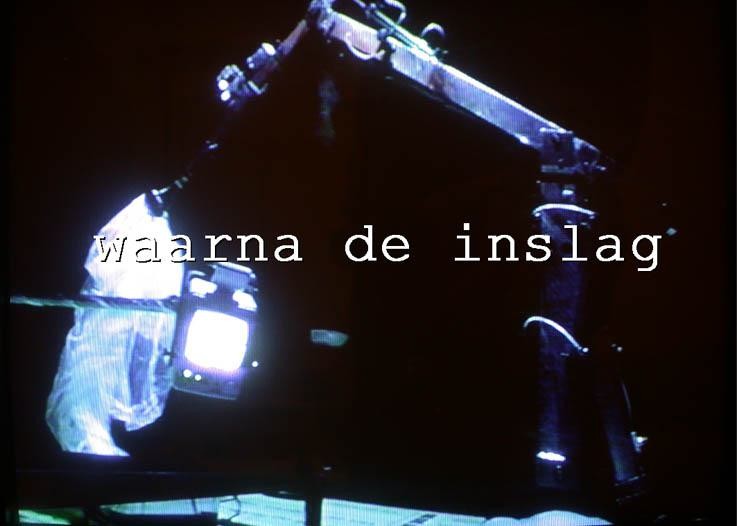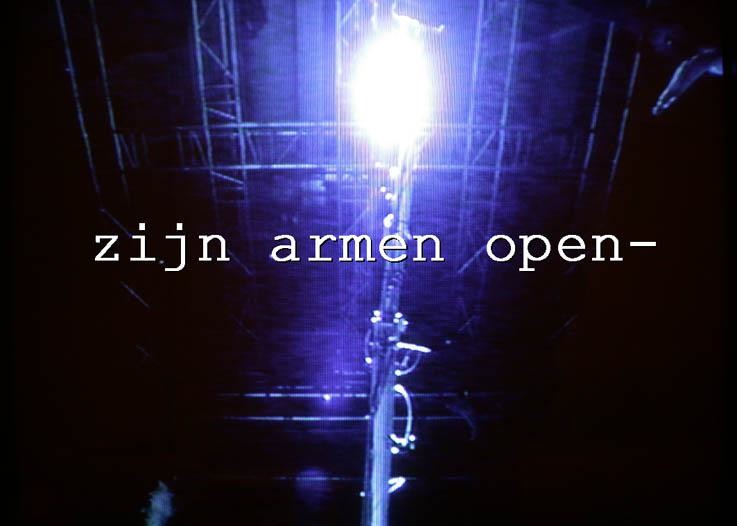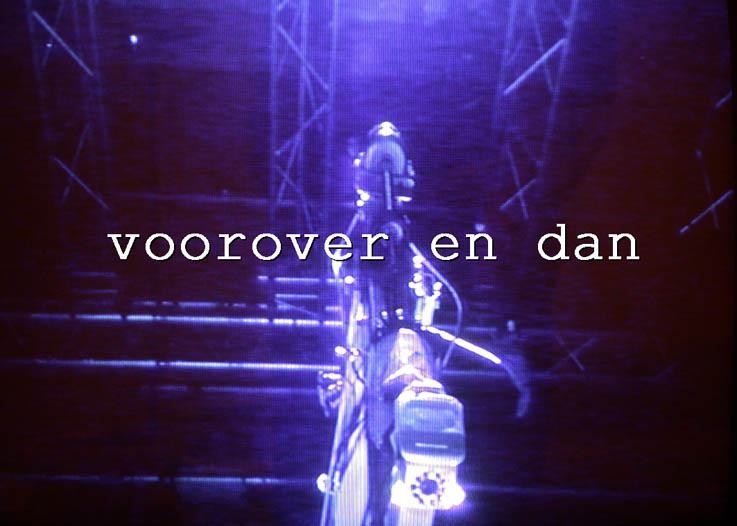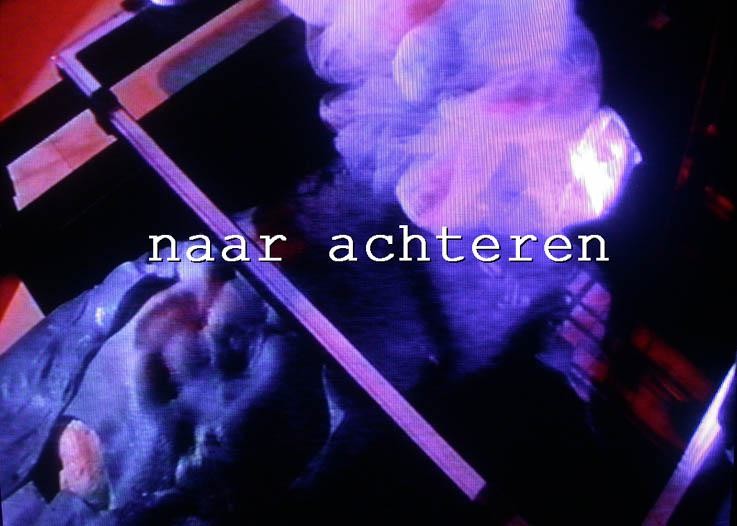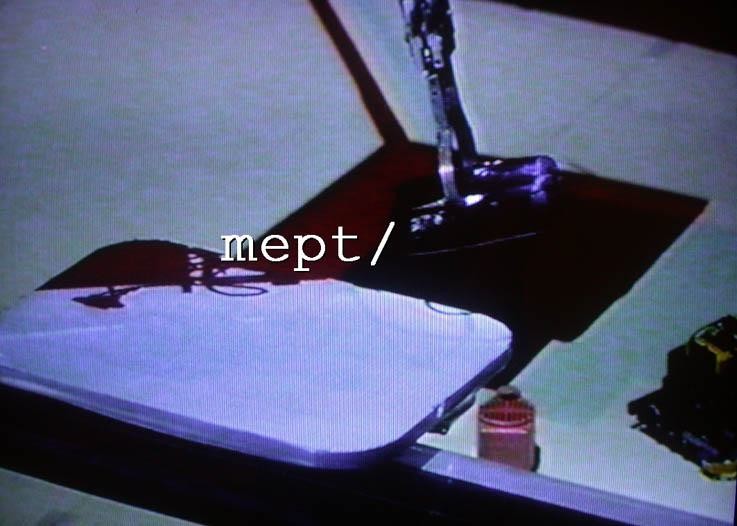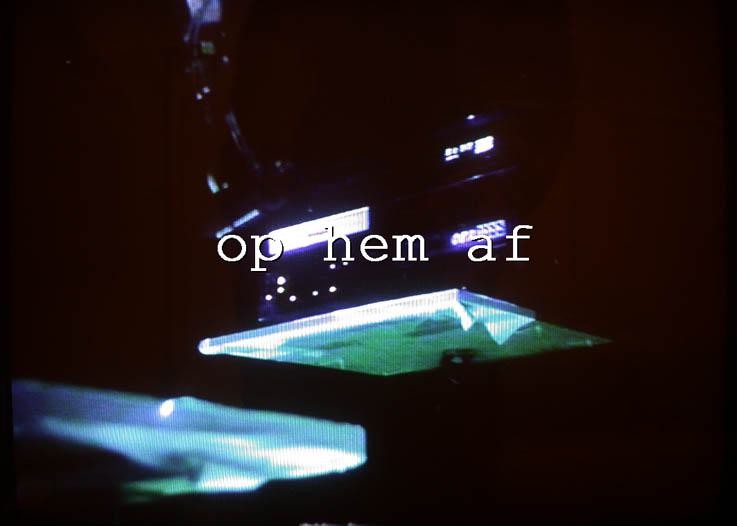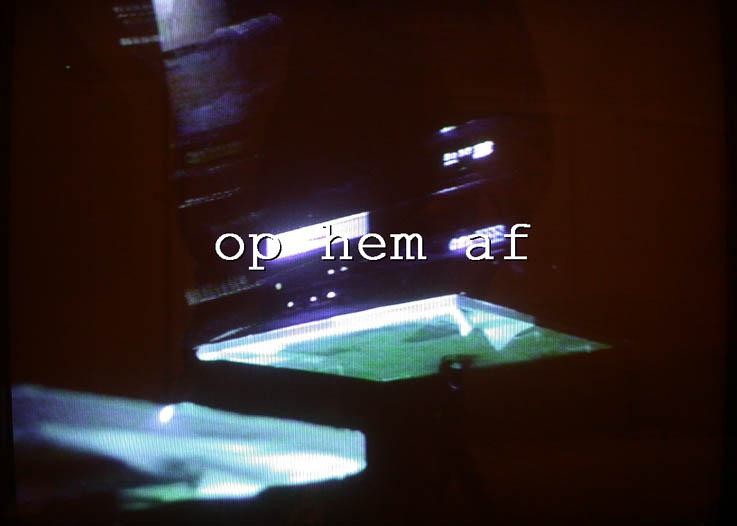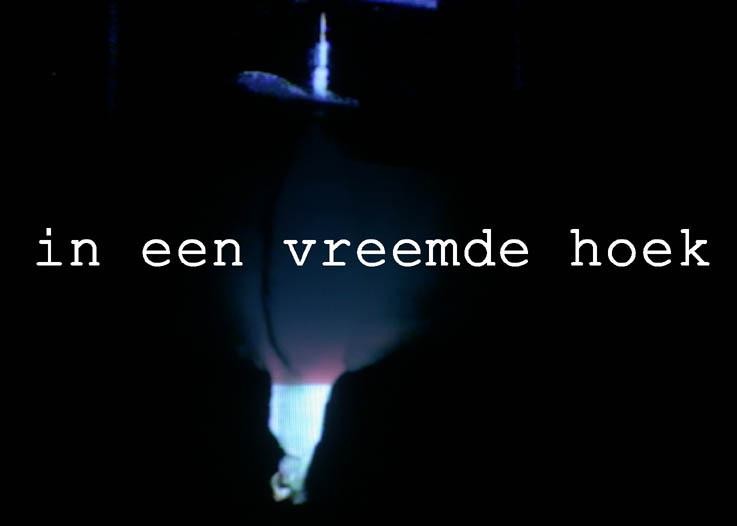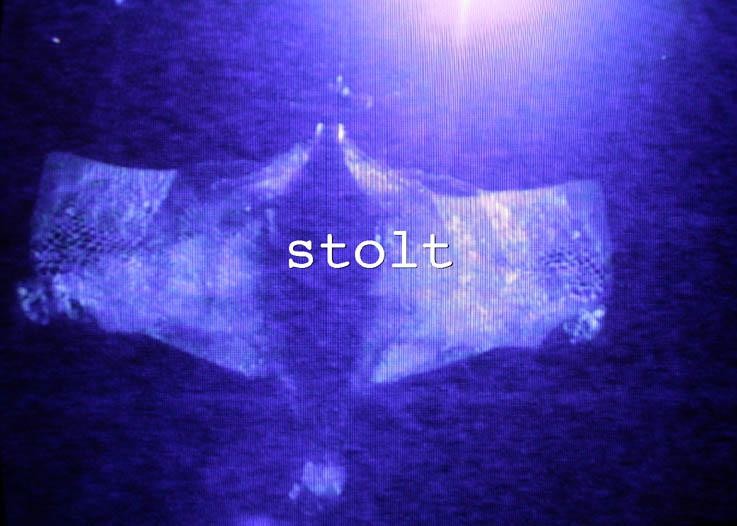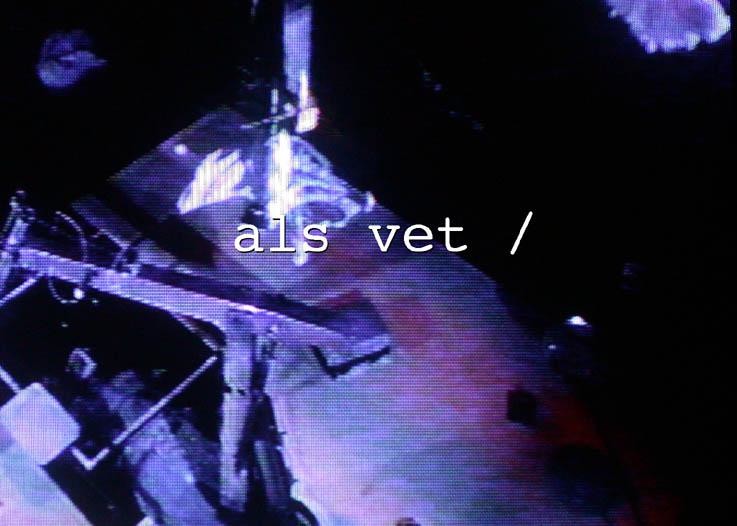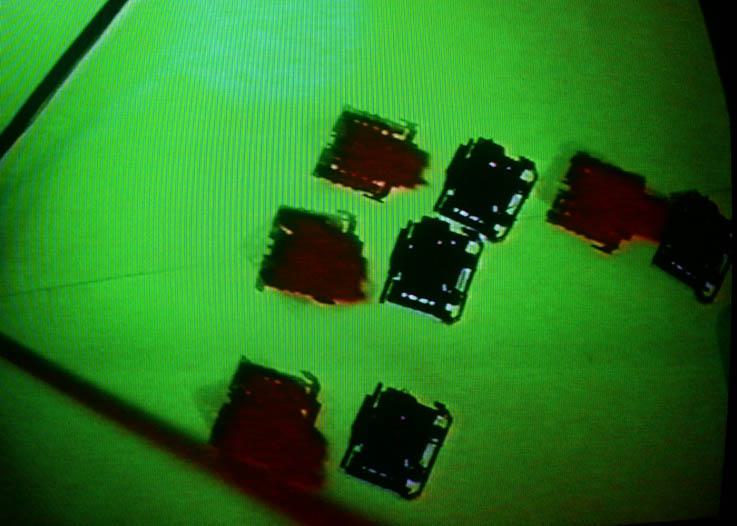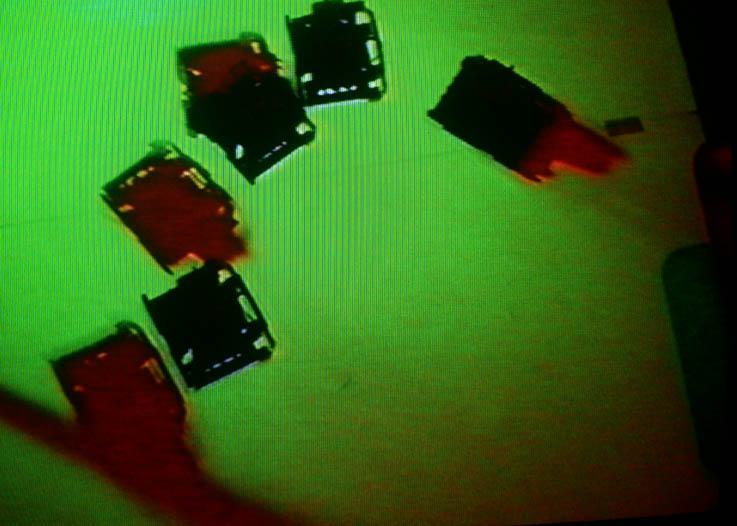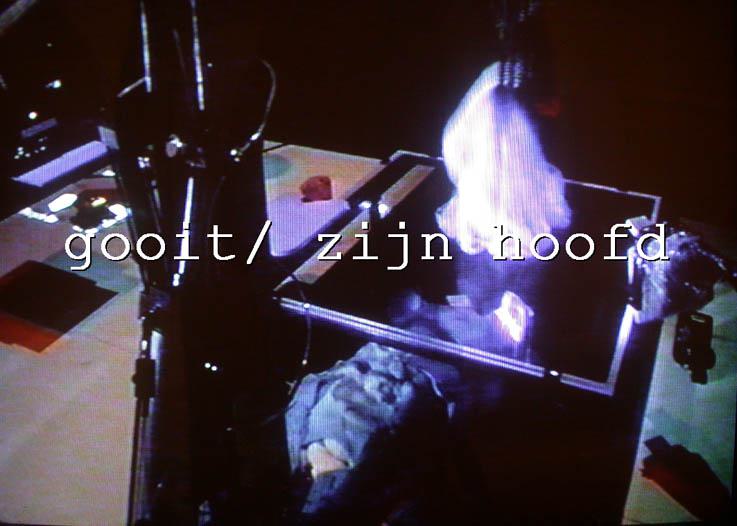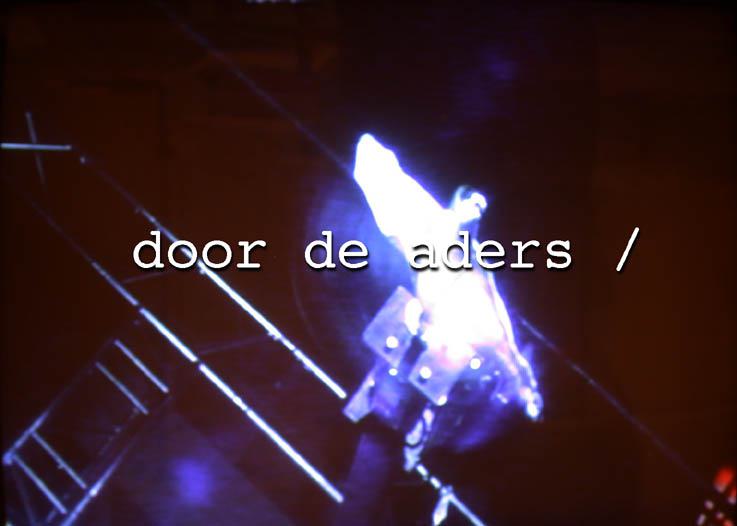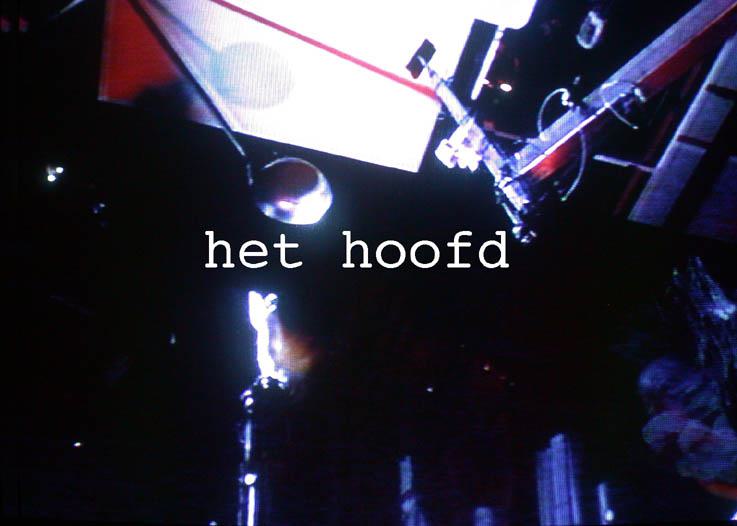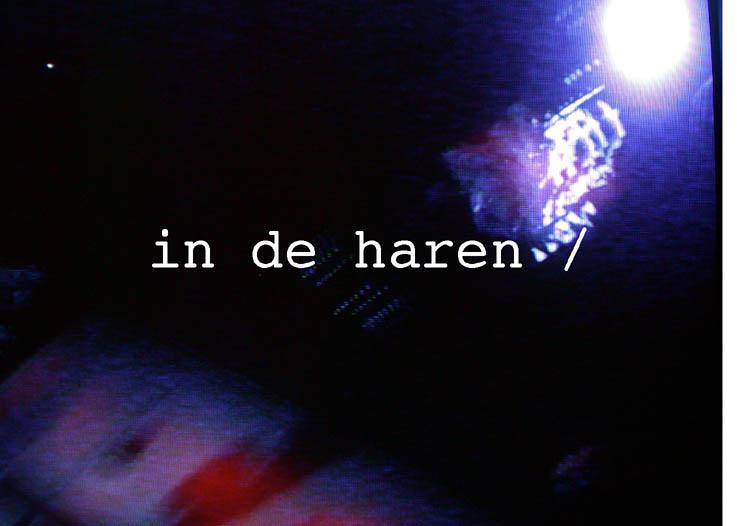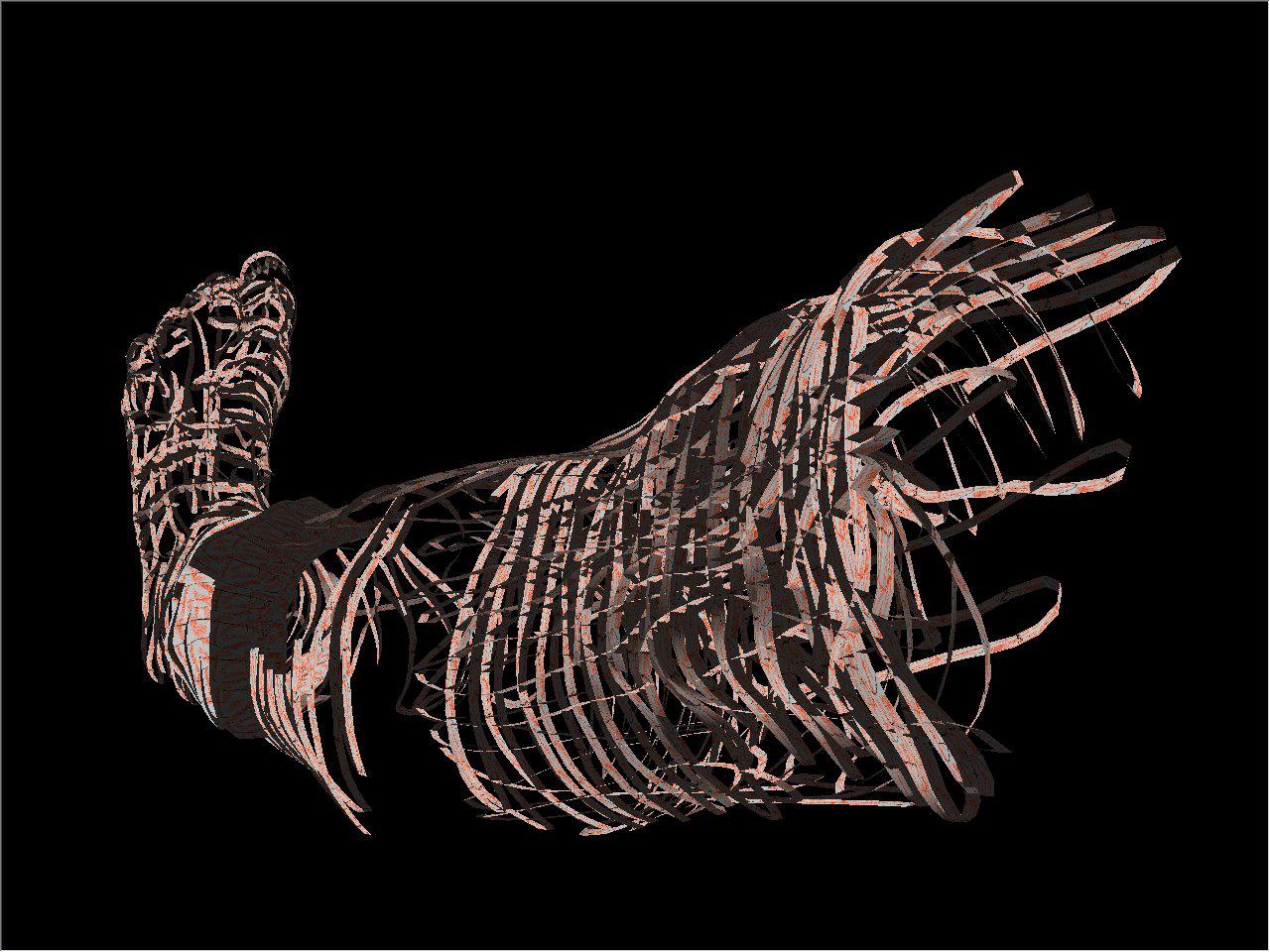Philoctetes
Philoctetes builds further on CREW’s Icarus in several respects: the idea of ‘multimedia as a prosthesis’ is elaborated in this performance. Paralyzed actor Paul Antipoff blends in naturally with his highly technological environment. The spectators are sitting or standing in a kind of cage from where they look down on Antipoff’s body. When mini-robots attack the paralyzed body, the performance reminds of a public dissection in an anatomical theatre.
Philoctetes is the Greek warrior who is abandoned by Odysseus on the barren island of Lemnos because he has a foul-smelling leg wound that won’t heal. Thanks to his magic bow, Philoctetes manages to survive for nine years. But then Odysseus returns to deprive him of the bow… In this radically adapted version by CREW and writer Peter Verhelst bow and arrow take the form of high-tech instruments that enable the exile to survive. Odysseus’ intervention can be understood as an attempt to suppress this symbiosis of man and machine. Verhelst’s text describes this attack and shifts the focus to the inside of Philoctetes body where the virus is threatening the system. In Philoctetes the possibilities of a new type of man are explored. Since skin is no longer considered as a barrier, Antipoff’s body can be extended in virtual space. Not only does he exceed his physical limitations there, he even takes over full control of the environment. The question arises where the body ends and technology begins.
Is technology the prosthesis of the body? Or is it the other way around? Part of the project is a website where you can have your own texts degenerated by the Philoctetes -software that was developed by the department of Computer Linguistics from the University of Antwerp. The Text Degenerator acts as a virus that nestles itself in the body cells of its host and deforms them.



